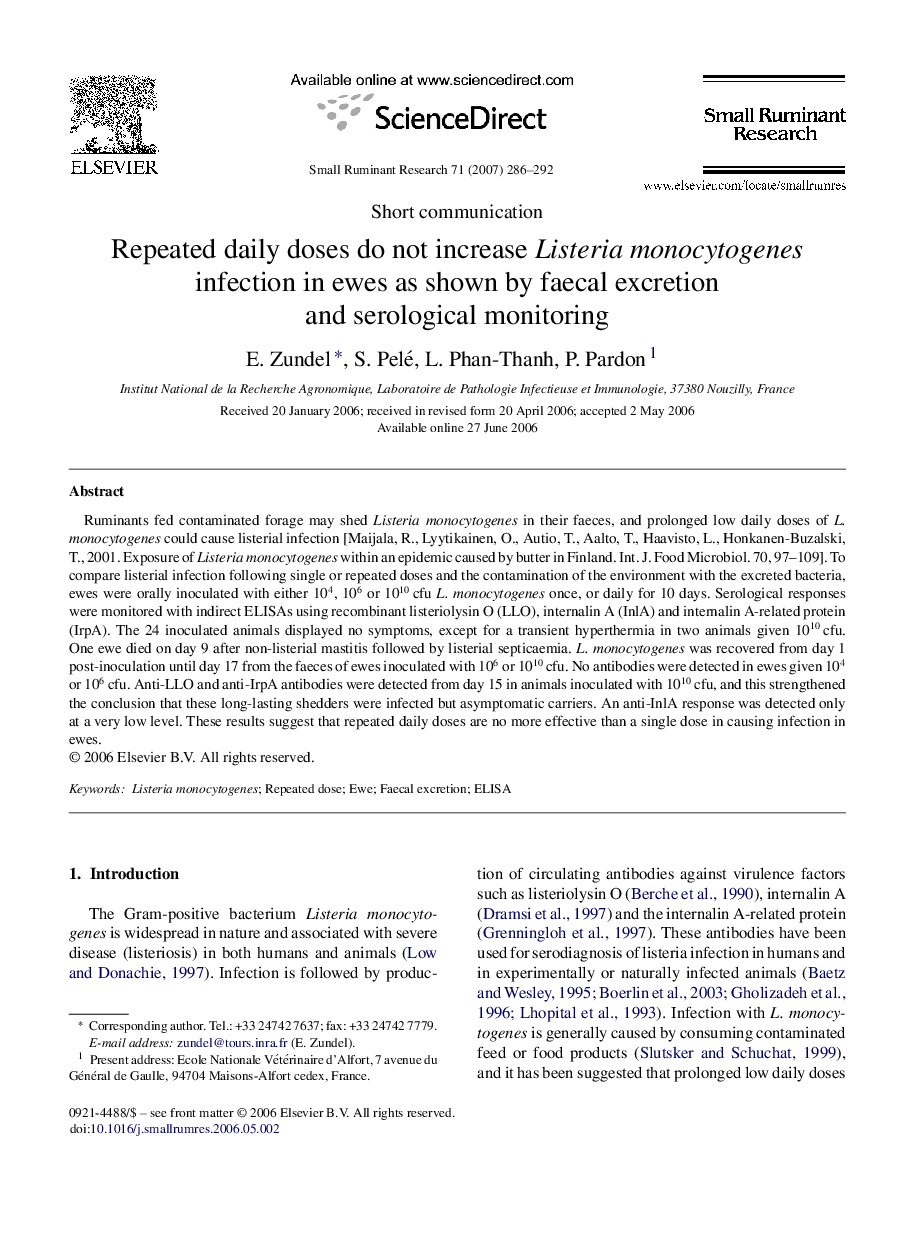| Article ID | Journal | Published Year | Pages | File Type |
|---|---|---|---|---|
| 2458192 | Small Ruminant Research | 2007 | 7 Pages |
Ruminants fed contaminated forage may shed Listeria monocytogenes in their faeces, and prolonged low daily doses of L. monocytogenes could cause listerial infection [Maijala, R., Lyytikainen, O., Autio, T., Aalto, T., Haavisto, L., Honkanen-Buzalski, T., 2001. Exposure of Listeria monocytogenes within an epidemic caused by butter in Finland. Int. J. Food Microbiol. 70, 97–109]. To compare listerial infection following single or repeated doses and the contamination of the environment with the excreted bacteria, ewes were orally inoculated with either 104, 106 or 1010 cfu L. monocytogenes once, or daily for 10 days. Serological responses were monitored with indirect ELISAs using recombinant listeriolysin O (LLO), internalin A (InlA) and internalin A-related protein (IrpA). The 24 inoculated animals displayed no symptoms, except for a transient hyperthermia in two animals given 1010 cfu. One ewe died on day 9 after non-listerial mastitis followed by listerial septicaemia. L. monocytogenes was recovered from day 1 post-inoculation until day 17 from the faeces of ewes inoculated with 106 or 1010 cfu. No antibodies were detected in ewes given 104 or 106 cfu. Anti-LLO and anti-IrpA antibodies were detected from day 15 in animals inoculated with 1010 cfu, and this strengthened the conclusion that these long-lasting shedders were infected but asymptomatic carriers. An anti-InlA response was detected only at a very low level. These results suggest that repeated daily doses are no more effective than a single dose in causing infection in ewes.
